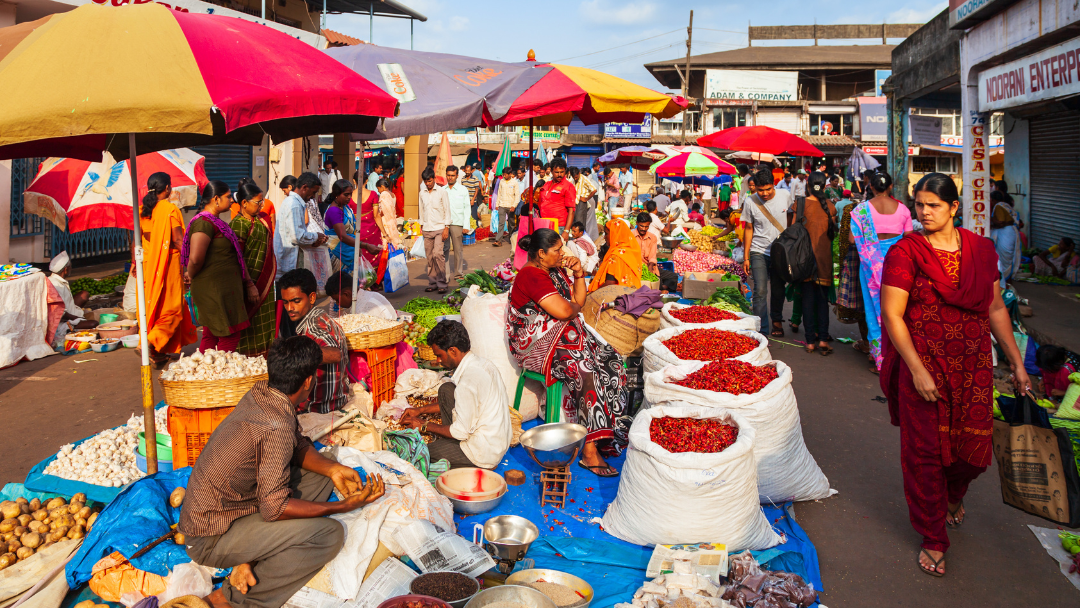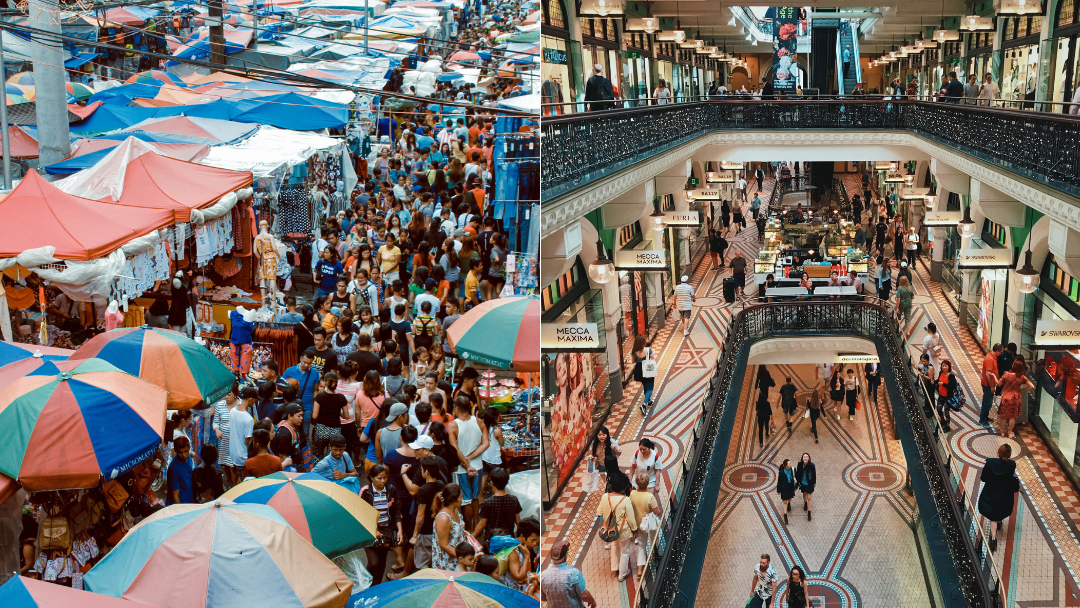Retail business in India refers to the buying and selling of goods to consumers for personal use. It involves the sale of products directly to customers through brick-and-mortar stores, online platforms, or a combination of both. The retail sector in India is diverse and encompasses various types of businesses, including supermarkets, specialty stores, department stores, convenience stores, hypermarkets, e-commerce platforms, and more.
India has a large and growing consumer market, making the retail sector a significant contributor to the country’s economy. The retail industry in India is driven by factors such as increasing disposable income, urbanization, changing consumer preferences, and the growth of organized retail.
In recent years, e-commerce has gained immense popularity in India, with several online marketplaces and platforms offering a wide range of products, including electronics, fashion, groceries, and more. Additionally, traditional retail formats like supermarkets and department stores continue to be prevalent, especially in urban areas.
Retail businesses in India face various challenges, including intense competition, supply chain management, high real estate costs, regulatory complexities, and the need to adapt to changing consumer behavior. However, opportunities for growth remain substantial, particularly in tier 2 and tier 3 cities, as well as through the expansion of e-commerce.

Organized retail is selling goods or services through a planned and structured approach. It involves various elements such as a well-designed store layout, merchandising strategies, inventory management, customer service, and marketing activities. Organized retail typically includes chain stores, supermarkets, department stores, specialty stores, and other retail formats managed and operated systematically. It aims to provide customers a consistent and convenient shopping experience while maximizing sales and profitability for the retailer.
WHAT IS UNORGANIZED RETAIL IN INDIA?
Unorganized retail in India refers to the sector of the retail industry that consists of small, independently owned businesses that are not organized in a formal or structured manner. These retailers often operate in traditional markets, small shops, street vendors, and local neighborhood stores.
Unorganized retail is characterized by a lack of standardization, limited infrastructure, and informal business practices. These retailers typically have low investment capacities and often struggle to compete with organized retail formats.
However, unorganized retail plays a significant role in India’s retail industry, especially in rural and semi-urban areas. Many consumers prefer shopping from these local retailers due to convenience, personalized service, and familiarity.
Overall, unorganized retail in India is a vibrant and diverse sector consisting of numerous small businesses that cater to the diverse needs of the Indian population.

COMPARISON BETWEEN ORGANIZED AND UNORGANIZED RETAIL
Organized and unorganized retail are two distinct types of retailing in India, each with its own characteristics and impact on the economy.
1. DEFINITION:
Organized Retail: Refers to modern retail formats such as supermarkets, hypermarkets, and department stores that are typically large in size and have standardized operations and inventory management systems. These retail chains are usually owned and operated by large corporate entities.
Unorganized Retail: Refers to traditional retail formats such as small independent stores, street vendors, and local markets. These retailers tend to have smaller operating spaces and usually lack standardized operating systems.
2. MARKET SHARE:
Organized Retail: The organized retail sector in India accounts for a relatively smaller market share compared to unorganized retail. As of 2021, it has a market share of around 12%-15%.
Unorganized Retail: The unorganized retail sector in India dominates the market with a significant market share of about 85%-88%.
3. SIZE AND SCALE:
Organized Retail: Organized retail chains typically operate on a larger scale, with bigger store sizes and multiple outlets across different cities. They leverage economies of scale to offer a wider range of products and services.
Unorganized Retail: Unorganized retail consists of small shops and vendors that operate on a smaller scale, often limited to a single location. They cater to the immediate neighborhood or community and have limited product variety.
4. CUSTOMER EXPERIENCE:
Organized Retail: Organized retailers provide a more enhanced and standardized customer experience. They offer air-conditioned premises, organized product displays, convenient parking, and efficient billing systems. They also have various customer loyalty programs and after-sales services.
Unorganized Retail: Unorganized retail stores are generally more familiar and convenient for local communities. The interactions with shopkeepers are often personalized, and customers can negotiate the prices and build personal relationships with the vendors.
5. EMPLOYMENT GENERATION:
Organized Retail: Organized retail contributes significantly to formal employment generation. These retail chains employ large numbers of workers across various functions, including sales, logistics, operations, and marketing. They often provide better job security, training, and growth opportunities.
Unorganized Retail: Unorganized retail is a major source of informal employment in India. It provides self-employment opportunities to small shop owners and supports numerous small-scale suppliers and vendors. However, job security and benefits are generally limited in this sector.
6. IMPACT ON THE ECONOMY:
Organized Retail: Organized retail plays a crucial role in boosting the overall economy. It attracts investments, improves supply chains, promotes technological advancements, and drives consumption. It also contributes to increased tax revenues and the formalization of the retail sector.
Unorganized Retail: Unorganized retail, while dominant, often faces challenges such as tax evasion and limited productivity. However, it serves as an important source of livelihood for a significant portion of the population, especially in rural and semi-urban areas.
SUMMING UP
Retail business in India refers to the buying and selling of goods and services directly to the end consumers. It encompasses various sectors such as clothing, electronics, groceries, and more. With a rapidly growing middle class and increasing consumer spending, the retail industry in India presents significant opportunities for both domestic and international companies.
Organized retail in India is characterized by large-scale, standardized operations, and modern formats, while unorganized retail comprises small-scale, localized, and traditional formats. Both types of retail have their own strengths and limitations but contribute to the overall growth and employment in the Indian retail sector.

